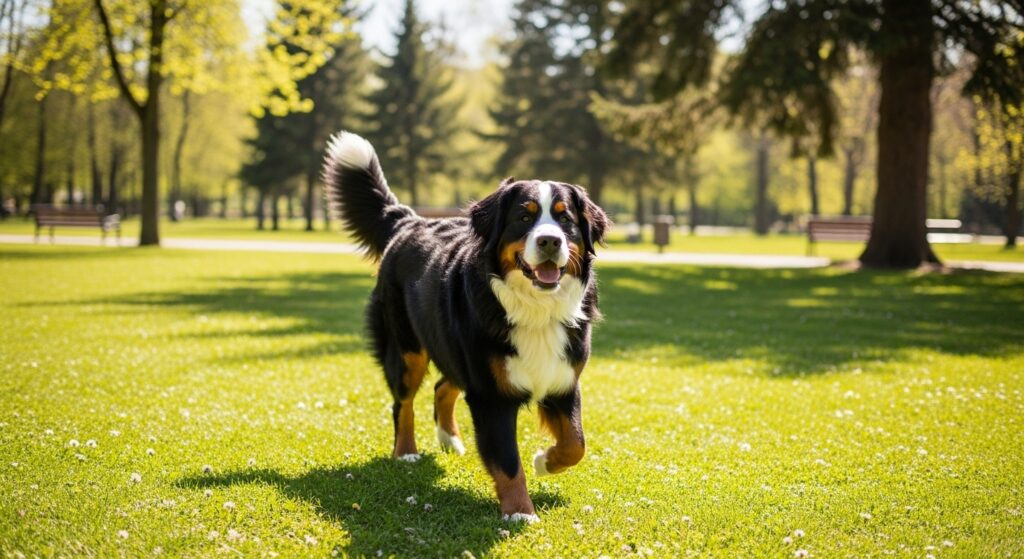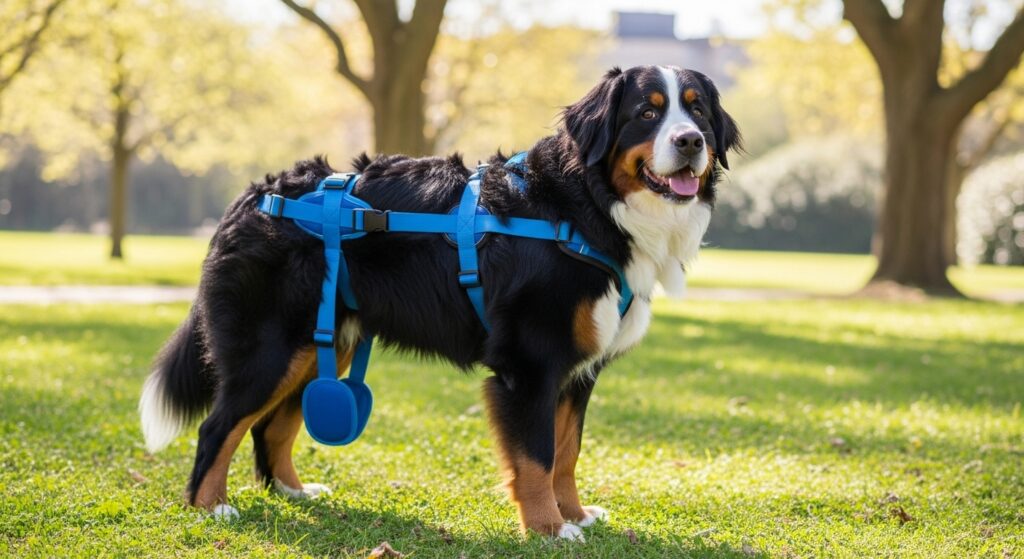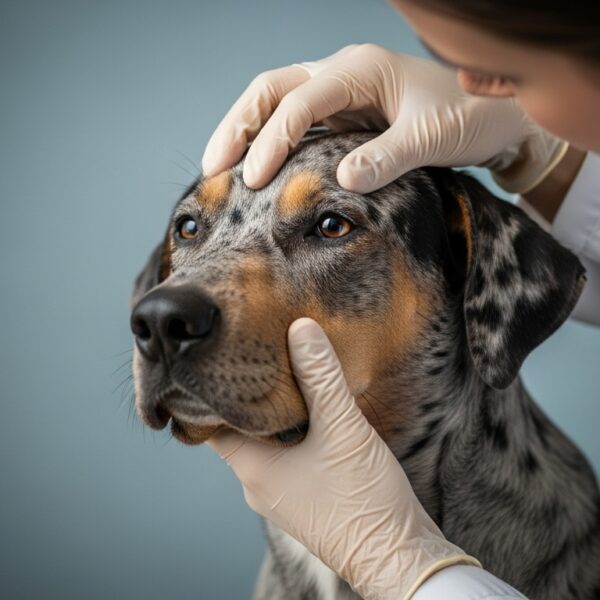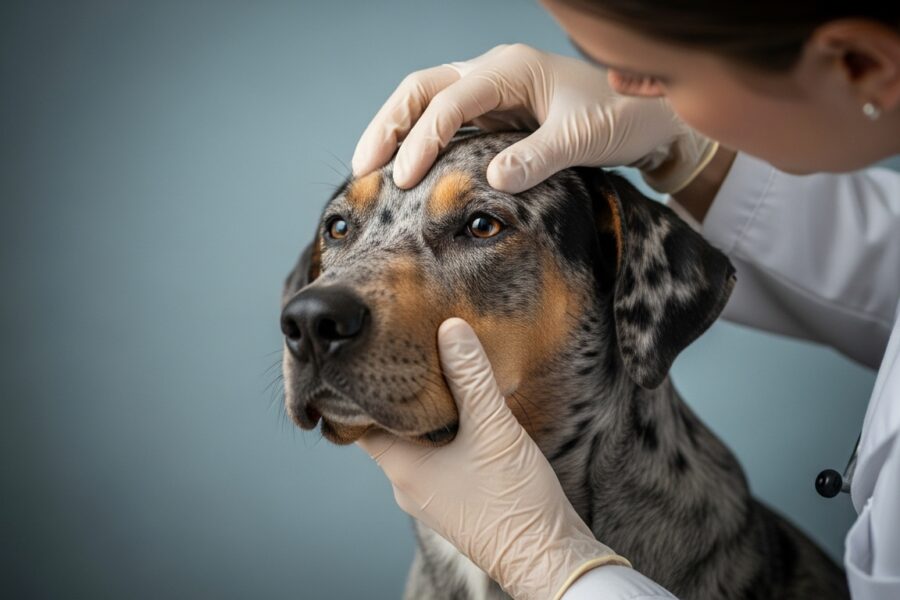Table of Contents
Introduction
Bernese Mountain Dogs are gentle giants, famous for their loyalty and big, fluffy coats. But did you know that this lovable breed is also prone to some unique health issues? Whether you’re a longtime Bernese owner or just thinking about adopting one, it’s crucial to know the most common bernese mountain dog health issues, the warning signs to watch for, and what you can do to help your dog live a long, happy life. Let’s dive in with compassionate, expert-backed advice!

1. Hip and Elbow Dysplasia
What It Is:
These are painful joint conditions where the bones don’t fit together properly, which can lead to arthritis and trouble moving around. Unfortunately, big breeds like the Bernese Mountain Dog are more likely to suffer from hip and elbow dysplasia.
Warning Signs:
- Limping, stiffness, or awkward movement
- Trouble standing up or climbing stairs
- Less interest in walks or playtime
Expert Tips:
- Keep your Bernese at a healthy weight (extra weight means extra stress on joints!)
- Provide a comfy bed (orthopedic beds are best)
- Regular checkups with your vet—early detection makes a huge difference!
- Gentle exercise and swimming can help strengthen muscles

2. Cancer Risks
What It Is:
Sadly, cancer is one of the most common bernese mountain dog health issues. Bernese Mountain Dogs are particularly prone to certain kinds, such as histiocytic sarcoma and lymphoma, often at a younger age compared to other breeds.
Warning Signs:
- Unexplained lumps or bumps
- Rapid weight loss
- Loss of appetite or energy
- Persistent cough or difficulty breathing
Expert Tips:
- Do monthly “nose-to-tail” checks for lumps and bumps
- Report suspicious signs to your vet right away
- Make sure to schedule annual (or twice-yearly) health checks, especially after age 5

3. Bloat (Gastric Dilatation-Volvulus)
What It Is:
Bloat is a sudden, serious stomach issue where the stomach fills with gas and can twist. It’s life-threatening and needs immediate vet care. Large, deep-chested breeds like the Bernese Mountain Dog are at much higher risk.
Warning Signs:
- Sudden swelling or hardening of the belly
- Restlessness, pacing, or trying to vomit (but nothing comes out)
- Excessive drooling
Expert Tips:
- Feed smaller, more frequent meals—avoid one big meal a day
- Don’t exercise your dog immediately before or after eating
- Use slow-feed bowls and raise water bowls to a comfortable height
- Know the signs and keep the emergency vet’s number handy

4. Degenerative Myelopathy
What It Is:
A progressive disease of the spinal cord, similar to ALS in people. It leads to loss of coordination, weakness, and eventually paralysis of the back legs. This is one of the heartbreaking bernese mountain dog health issues with no cure, but supportive care can improve quality of life.
Warning Signs:
- Wobbly walking or dragging feet
- Difficulty standing up
- Fading muscle tone in hind legs
Expert Tips:
- Keep nails trimmed—so they don’t catch when walking
- Physical therapy and gentle exercise as recommended by your vet
- Consider a harness or doggy wheelchair for mobility as the disease progresses

5. Eye and Skin Issues
What They Are:
Berners can suffer from a variety of eye problems (like cataracts and progressive retinal atrophy) and skin issues (hot spots, excessive shedding, or allergies).
Warning Signs:
- Red, cloudy, or teary eyes
- Scratching, licking, or bald spots on the skin
- Head shaking or rubbing face
Expert Tips:
- Keep eyes clean and check for discharge or redness
- Regular grooming and coat checks
- Ask your vet about special shampoos or supplements for sensitive skin

How to Help Your Bernese Live a Long, Healthy Life
- Choose a reputable breeder who tests for genetic health issues
- Keep regular vet appointments—prevention is your best tool
- Give your Bernese daily love, proper exercise, and high-quality food
- Stay alert to any changes in behavior, movement, or appearance—trust your instincts!
Frequently Asked Questions
Q1: How long do Bernese Mountain Dogs usually live?
Bernese Mountain Dogs generally have a lifespan of 7–10 years, slightly shorter than some other breeds due to increased health risks. Early detection and preventive care can help extend your dog’s life.
Q2: Can I prevent all these health issues in my Bernese?
Not all—some health risks are genetic or linked to the breed’s size. But by choosing responsible breeders, regular vet visits, proper nutrition, and prompt attention to warning signs, you can give your Bernese the best chance at a healthy life.
Q3: Are Bernese Mountain Dogs good family pets despite health issues?
Absolutely! They are loving, loyal, and excellent with families. Understanding common bernese mountain dog health issues just makes you a better, more prepared owner.
Q4: Should I get pet insurance for my Bernese Mountain Dog?
Given the breed’s higher likelihood of expensive medical issues, pet insurance for Bernese Mountain Dogs is often recommended and can make unexpected costs easier to manage.
Conclusion
Bernese Mountain Dogs may face more health challenges than some other breeds, but they return the love tenfold. By staying aware of bernese mountain dog health issues, knowing the warning signs, and following expert care tips, you can help your big, fluffy friend live their happiest life by your side.







